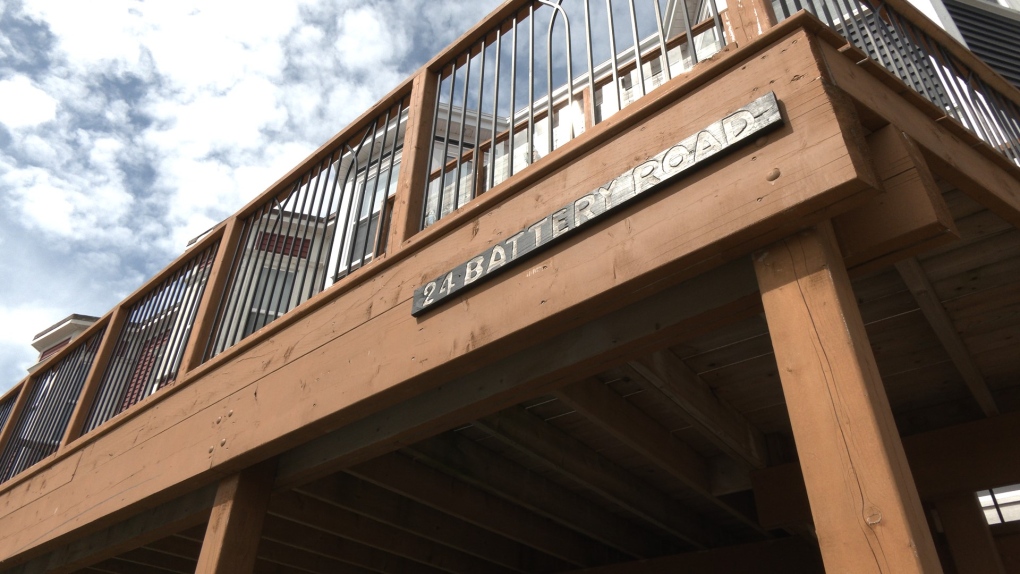Newfoundland and Labrador is the latest jurisdiction to bring in stricter rules for short-term rentals, with a coming set of regulations that will force operators to register with the provincial government.
Operators of short-term rentals, like Airbnbs, have until June 30 to register with the provincial government or face being removed from the online platforms, according to the provincial department of tourism, culture, arts and recreation.
Amendments passed Friday extend the requirement to homeowners who list their own houses for short-term rental.
Deborah Bourden, chair of Hospitality Newfoundland and Labrador, says the new regulations will help level the playing field between short-term rentals and bigger, established players.
She said all accommodations must now follow the same set of rules on fire safety and insurance coverage.
“We had to figure out as an industry, how do we put our arms around this whole new type of accommodation?” she said Monday. “The main thing to be concerned about always is fire, life and safety.”
Deborah Bourden is the chair of Hospitality Newfoundland and Labrador, which spent years lobbying and working with the provincial government to change regulations affecting Airbnb and other short-term rental listings. (CTV News)
While the rules aren’t aimed at squeezing out Airbnb owners, Bourden said some will find the new standards too costly or too difficult.
“For some people, it won’t be a big deal. But if you’re, you know, a basement apartment here in St. John’s and suddenly… you have to face the prospect of putting four or five egress windows in your basement apartment, you might say no, that’s not really for me.”
Across the country, in British Columbia, authorities are taking a much stricter approach.
Starting this month, in dozens of communities including Vancouver and Victoria, homeowners will no longer be able to host short-term rentals in units off their main properties.
Only their primary residences and secondary suites — or another dwelling unit on the same property —will be legal to list online.
The provincial government says it hopes to return some of the 16,000 home that are primarily used for short-term rentals into the regular housing market, in an effort to improve housing affordability and access in the province.
Nancy Paine, who ran a property management company for short-term rentals, says she’s shut her Victoria-based business down — though she disagrees with the provincial government’s approach.
“People were paying a license, they were doing the business above board and it was sanctioned in these areas,” she said. “It’s really taking away their property rights as they knew them and as they purchased these homes.”
Paine estimates only a third of the homeowners she worked with will list their properties for long-term rentals. The others are trying to sell or simply holding on to their units.
She said many of the Airbnb units she managed were quite small — not attractive for long-term tenants.
“I think there are better ways to go about addressing affordable housing,” she said.
The debate over short-term rentals continues in other parts of Canada, too: in Ontario’s cottage country, the township of Muskoka Lakes is considering a new bylaw that — similar to Newfoundland and Labrador’s — would create a registry and listing of short-term rentals.
Mayor Peter Kelley said there are about 800 units that municipal staff are aware of, and likely many more. Of those, he said, a small number are causing big issues.
“They come in, they’re making noise, they’re partying excessively, music, fireworks. They’re defying fire bans.”
He said part of the regulations will ask owners to name themselves or a separate property manager that could be on site with one hour’s notice, in order to more proactively respond to issues as they arise.
“To the extent that there’s disruptive behaviour so that it can be set right in the moment and salvage what’s left of the weekend… rather than waiting sort of after the fact for fines to be issues, which really doesn’t satisfy the problem.”
He said the proposed rules got a lot of feedback and municipal staff are now studying the responses. He expects the rules to be in place by next summer.




















Discussion about this post